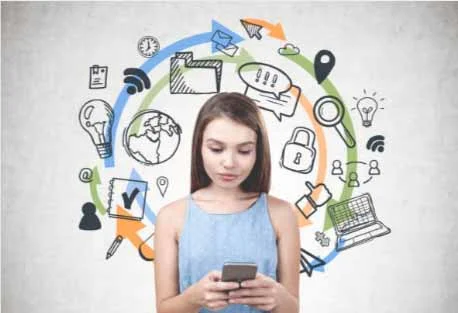From FOMO to JOMO: Navigating Social Media Technology’s Effects on Mental Health
In today’s digital age, social media has become an integral part of our lives. It allows us to connect with friends, share experiences, and stay up to date with the latest trends. However, as social media usage continues to rise, so does its impact on our mental health. The fear of missing out, commonly known as FOMO, has become a prevalent issue in our society. But what if we could turn the tables and embrace a more positive mindset? Enter JOMO – the joy of missing out. In this article, we will explore how social media affects our mental wellbeing and provide tips on how to navigate its challenges.
The Impact of Social Media on Mental Health
Social media platforms are designed to be addictive, constantly presenting us with a stream of carefully curated content. This constant exposure can lead to negative effects on our mental health, including:
- Comparison: When scrolling through our feeds, we are bombarded with idealized versions of others’ lives. This can lead to feelings of inadequacy and low self-esteem as we compare ourselves to the seemingly perfect lives of others.
- Isolation: Paradoxically, the more time we spend online, the less time we spend connecting with people in the real world. This can lead to feelings of loneliness and isolation, as our interactions become increasingly superficial.
- Anxiety: The fear of missing out on important events or experiences portrayed on social media can cause anxiety and stress. It creates a constant pressure to be online, checking for updates and staying connected.
Navigating Social Media Challenges
While we can’t eliminate social media from our lives entirely, we can take steps to minimize its negative impact on our mental health. Here are some strategies:
1. Limit Your Usage
Set aside dedicated time for social media and avoid mindless scrolling. By allocating specific periods to check your accounts, you regain control and reduce the risk of getting caught in a never-ending cycle of comparison.
2. Curate Your Social Media Feed
Unfollow accounts that don’t bring you joy or make you feel worse about yourself. Surround yourself with content that inspires and uplifts you. Seek out accounts that share positive messages and promote mental wellbeing.
3. Practice Digital Detoxes
Periodically disconnect from social media by taking breaks or setting designated days without accessing your accounts. Use this time to engage in activities that nourish your mental health, such as reading, exercising, or spending time with loved ones.
4. Cultivate Real Connections
While social media facilitates virtual connections, it’s essential to nurture your relationships offline as well. Plan outings with friends, engage in face-to-face conversations, and create meaningful memories – all of which contribute to a stronger sense of belonging and fulfillment.
5. Seek Professional Help
If you find that social media’s impact on your mental health is still overwhelming, don’t hesitate to seek professional assistance. Mental health professionals can offer guidance tailored to your specific needs, helping you navigate any challenges you may encounter.
Conclusion
Social media technology has undoubtedly changed the way we connect and interact with others. While it brings numerous benefits, it’s crucial to be aware of its potential negative effects on our mental health. By practicing strategies like limiting usage, curating our feeds, taking digital detoxes, cultivating real connections, and seeking professional help when needed, we can transform FOMO into JOMO. Embracing the joy of missing out allows us to prioritize our mental wellbeing and find contentment in the present moment. Remember, it’s not about disconnecting entirely, but about finding a healthy balance between the digital world and the real world.

